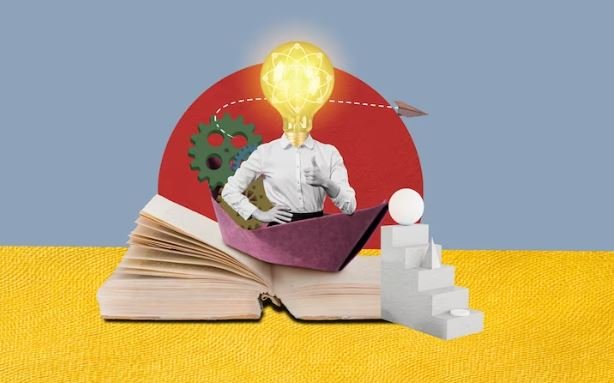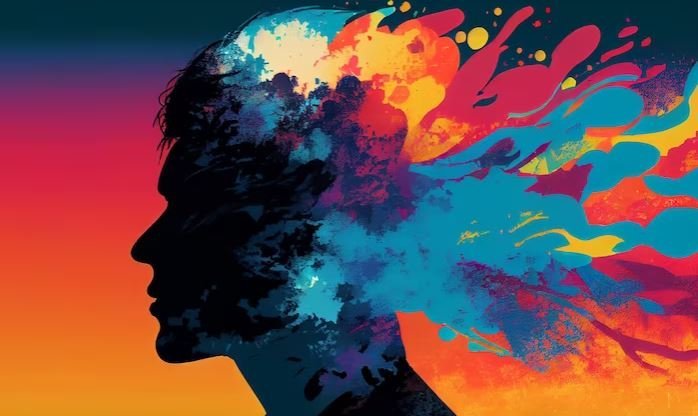Do you ever wonder what it means to understand something and not just remember it for a brief period? Yes, this is the point of conceptual learning. Concept-based learning helps you grasp ideas, with a deep understanding of the concepts which can be applied in unfamiliar situations where it has been never seen before.
Understanding the Concept
If you think of this as analogous to building a big puzzle. There are all these different parts, but instead of looking for how they could connect you start seeing the picture. Every piece is like a tiny data point, but as you merge them now you visualize something way more real and deep.
So conceptual learning is like creating this puzzle. It is not only to recall a lot of fragmented parts (or pieces or facts) but to see how those parts can make an integrated whole idea.
Working on Concept Learning?
The best part of learning comes when we learn the core and basic ideas which are conceptual. In math, for instance — not just completing addition and subtraction problems but understanding what those operations represent. Addition represents adding stuff together, and subtraction means removing things.
Once you know that, you can make use of these ideas in many different ways as — figuring out how much money is there after spending some or let’s say, you have shared your apples with your friends, so now what will be left?
It is a different kind of learning than rote memorization. You simply regurgitate only the way you learned to it. This is that right the conceptual learning: once you know abstract ideas, you can apply them to tons of new situations.

Why Conceptual Learning Is Significant
What is the significance of this learning, you may be thinking. There are mixed within the realm of your life that you have never passed through. You may not understand what to do when things go wrong if the only pieces of information you have are facts that were memorized. But if you know the reasons behind facts, you can think of an answer — no matter how outlandish that situation might be.
I mean, for example, you learned about gravity in science class. However, you also know what gravity is: the thing that makes objects fall towards the ground. When you’re at the playground later and watch a ball being nudged downhill, it rolls because of gravity.
You were not able to memorize that precise situation, but because you grasped the concept fully enough for your brain to interpret this new scenario.
So what is conceptual learning, and why does it matter — how can we do this? If you are a conceptual learner, These tips can help make it clear to you when learning Dental Anatomy.
Inquiry: As you learn something new, question it and do not just accept it as is. Ask why and how it works. Such as, when you are studying plants in science class and ask… why do they need sunlight? or more basically: How Roots Help Plants to Grow? These questions allow you to think more about the subject.
Associate: Look for anything that relates to what you learn and try connecting it with something else. For example, if you are studying how water can turn from a liquid into a solid: imagine just the way that we know ice forms when your work field is within the case of butter! When you make these connections, this allows for a greater understanding of how principles operate on differing levels.
Teach It to Others: The best way to learn a concept is by explaining it to another person. You should be able to explain a new concept you learn with so much ease that if somebody were asked, ‘Can you teach it?’, they would reply; oh yes I think even my grandma will understand.
Miscellaneous — Use What You Have Learned In Other Ways, Attempt To Apply It Elsewhere If you have an addition in maths, use this when baking cookies by adding up the ingredients. You may know more about animals now from your science lessons, so think about how they would act in a different setting.
Concept Learning Across Subjects
So let us see how conceptual learning plays a role in areas you study at school.
Math: And in math, instead of just memorizing how to solve problems you will know the actual reasoning for why it is done that way. A common example is recognizing that when you multiply, this in essence a shorthanded way of adding many times gives great insight into how various math problems can be solved much more quickly.
Science: You learn the natural world through conceptual learning. As an example, one learns about energy which means that the sun gives you heat and why it gets exhausted after running. You don’t just memorize facts about energy, but you understand what energy is and how it functions in a variety of situations.
Reading: For reading, concept learning assists in recognizing or establishing the storyline. So, as kind of a boring example (but stay with me), if you get the idea that characters are like LEGOS blocks, and different pieces fit together in specific ways to form something new then move this concept forward— most stories have similar “themes” right? Your mind can begin to relate and that incentive will allow you to absorb the story even if things have changed.
Social Studies: In social studies conceptual learning helps you to understand how people and societies work together. If students understand what “community” means, they can identify and compare how we work together in different areas of the world by observing first-hand — be it their neighbourhood or a nation thousands of miles away!
Advantages of Conceptual Learning
The list of the benefits of conceptual learning is pretty endless and also consists of lifelong advantages. Some of the major ones are as follows:
Critical Thinking: You can apply new information, and you can think critically. This means you can analyze situations, solve problems and make decisions in light of your understanding and not just recall facts.
World of change — further to grow, you will face bigger challenges as you get older. Being able to use what you learn in new situations is the only way that you can respond well to these changes, and learning concepts (which we interpret as ‘conceptual learning’) makes it easier for your brain.
Innovation: Instead of mimicking, you can generate original ideas. This will allow you to mix and match ideas, find fresh problem-solving ways of thinking, and even create something new.
Lifelong Learning: Object-oriented programming teaches you to learn all your life. If you know how stuff works, it inspires curiosity and makes you want to learn more about new ideas.
Conclusion
Learning theoretically is perhaps the most important tool by which people make sense of their world. It is not only about knowing the facts but also about looking at it from an aerial view and being able to see patterns in ideas. When you invest in learning concepts, this is how you improve creativity and problem-solving as well using your education — through concept-based continuing learning practice.
So the next time you learn something new, think about your questions and knitted cats. It will help you see more and retain it better, as well as prepare for any new hurdle that enters your life.


